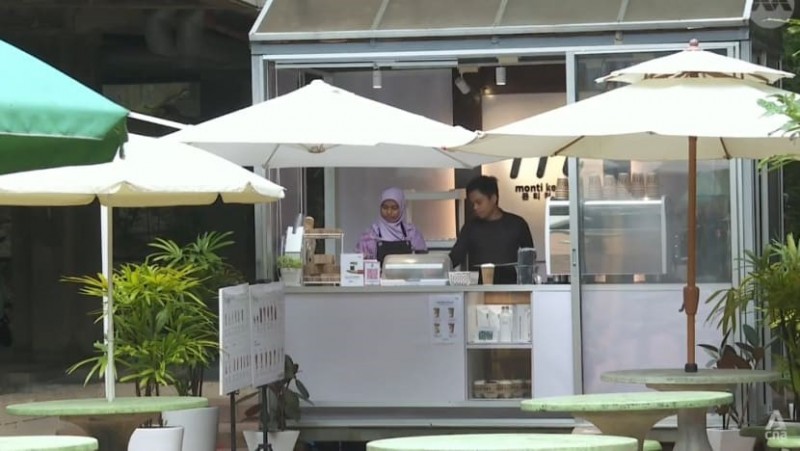
KUALA LUMPUR: Entrepreneur Ahmad Iskandar started his grab-and-go coffee concept stall with a tiny space at the National University of Malaysia (UKM) earlier this year.
By mixing South Korean and Italian coffee cultures with imported beans from Indonesia’s Aceh province, his Monti Keopi pop-up shop is a hit among university students.
With help from a government grant under a micropreneurship programme known as i-Tekad, he has since expanded to five stalls across several universities in Malaysia.
TRAINING YOUNG ENTREPRENEURS
However, training undergraduates to become young entrepreneurs like himself is proving to be easier said than done, said Mr Ahmad.
He has been actively recruiting baristas. Apart from teaching them how to brew a decent cup of joe, he also trains and encourages them to start their own businesses. Yet, few follow through.
“It’s hard. For every 10 participants (I have), only one will become their own boss, the CEO of their own brand and have their own business,” he said.
The 29-year-old added that those who want to succeed need to have the right mindset, discipline, and a willingness to work hard.
Having been a recipient of the grant himself, Mr Ahmad said the initiative is helpful to those who wish to take the first step into entrepreneurship but lack the finances to do so.
“Most of those who have applied for i-Tekad are those affected by the COVID-19 pandemic. They are lost, they don’t know what to do … this (grant) gives opportunity to those who do not have enough funds to start a business,” he said.
BACKBONE OF MALAYSIA’S ECONOMY
Small- and medium-size enterprises (SMEs) are the backbone of Malaysia's economy.
The 1.15 million SMEs comprise more than 97 per cent of the nation's businesses and deliver 38 per cent of its gross domestic product (GDP).
Of these, almost 80 per cent are micro-enterprises.
The government hopes that by introducing programmes such as i-Tekad, more Malaysians will set up small businesses, and offset some unemployment numbers in the process.
Industry players say that an increase in these micropreneurs, who operate small-scale businesses with little to no employees, could also help to narrow the widening income gap across the nation’s different states.
Eleven commercial banks are currently involved in the social financing programme.
Prime Minister Anwar Ibrahim said during a recent visit to the central bank that he hopes to see the number of commercial banks participating in i-Tekad increase to 21 by year end.
His government has also announced a top-up of fund allocation for the initiative from RM4 million to RM10 million (US$2.2 million).
MANY STILL FIND IT HARD TO GET HELP
Despite the government’s efforts in numerous initiatives, many still find it difficult to get help. They say the government should have programmes catered to specific demographics.
Ms Maziah Kamarulzaman, a partner at another pop-up chain Coffee Classic, suggested authorities roll out grants for student graduates who find it difficult to land a job, alongside different schemes to help seniors like herself.
“Not everybody can do the same thing. We appreciate what the government is trying to do for us, but they should also think about how different people are,” she added.
Her husband, Mr Mohd Azmi Kamarulzaman, who helps her in managing the business, said it has been difficult for him to access the grants, and called on the process to be made easier and more transparent.
MORE TARGETED GRANTS
Many small businesses are struggling amid rising costs and reduced consumer purchasing power.
Economists say help must be more targeted and result-oriented.
“The support has to be (handed out to the right people), not just because you are poor. We want to help you so that you can grow,” said Dr Noor Azlan Ghazali, director of the Malaysian Inclusive Development and Advancement Institute.
“It’s not just about announcing how many million (people) are getting (the grants), we need to also look at the graduation of the people, who can move on without government support.”
He said he is more worried about the widening income and growth disparities among the different states in Malaysia.
Currently, half of the workers in Malaysia earn less than US$500 a month.
The government has promised to raise workers’ income and address wage growth in the new industrial master plan.
It wants to reduce the country's dependence on low-skilled foreign labour, which contributes to the overall low wage levels.
Source: https://www.channelnewsasia.com/asia/malaysia-micro-business-micropreneurship-smes-i-tekad-grant-3747026

